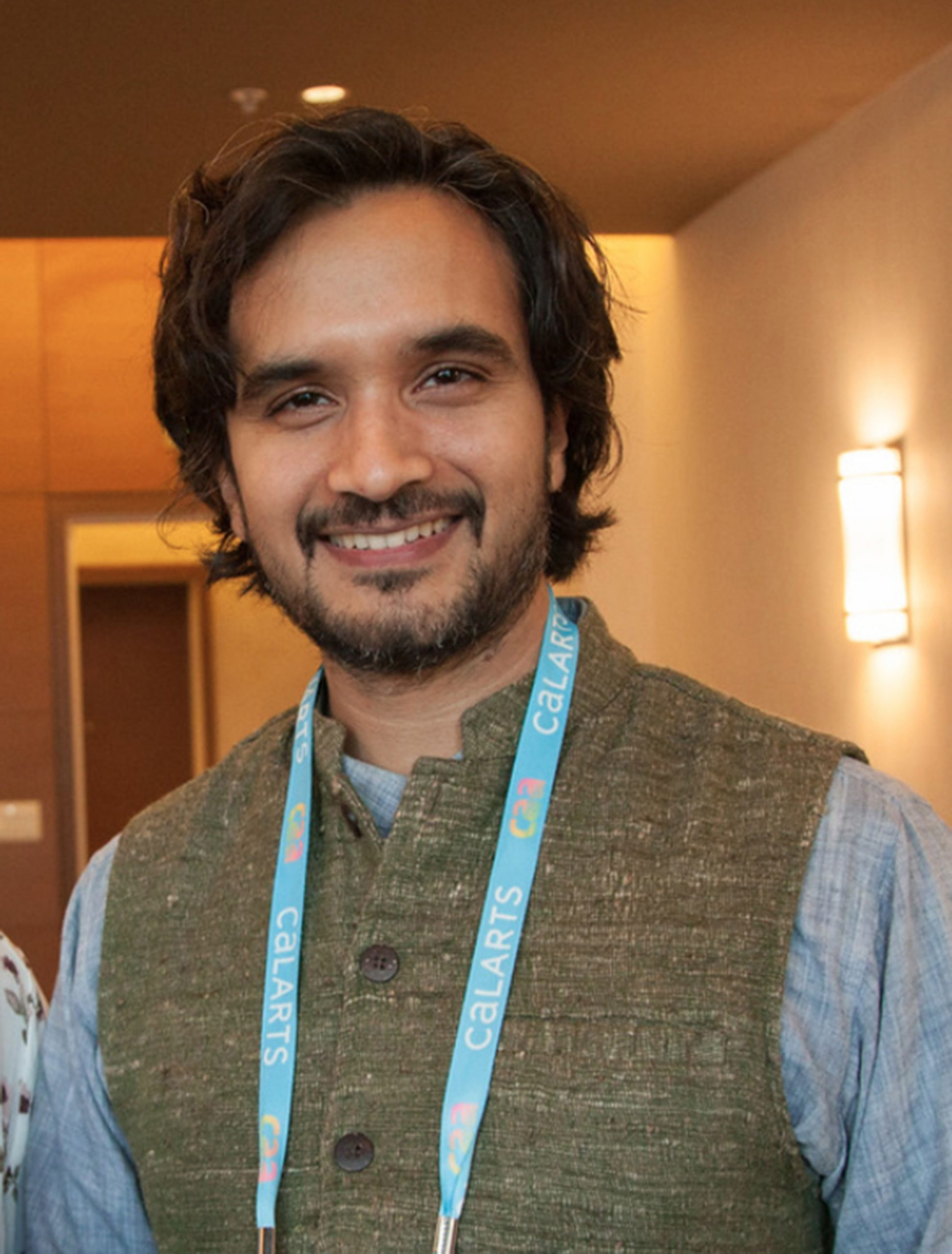Katie Kitamura, the celebrated author known for her gripping narratives, is set to captivate audiences in a special event at Harvard, where she’ll delve into her latest novel, “Audition.” This thought-provoking work not only explores the eerie intricacies of midlife but also reflects the themes of performance and identity that permeate Kitamura’s writing. With a keen interest in horror fiction, she uses her characters’ unsettling experiences to reveal the uncanny aspects of everyday life. Kitamura’s earlier novels, including “Intimacies,” have garnered critical acclaim, establishing her as a prominent voice in contemporary literature. As she prepares for her Harvard engagement, discussions around her inspirations—particularly the boundaries between personal and public life—are anticipated to resonate deeply with fans and literature enthusiasts alike.
In a literary landscape where narratives often blur the lines of reality and fear, Katie Kitamura stands out as an explorer of the human psyche. The audience will be intrigued to learn about the themes of artistry in her latest work, “Audition,” which mirrors the unsettling experiences faced by many in today’s society. As an emerging figure in the realm of horror narratives, Kitamura’s writing challenges conventions of literature and performance, inviting readers into a world of emotional complexity and suspense. Her involvement in significant literary discussions, such as the event at Harvard, highlights her commitment to exploring the nuances of existence through storytelling. With every novel, Kitamura not only evokes fear but also encourages us to reflect on the deeper meaning of our everyday interactions.
The Horror Element in Katie Kitamura’s New Novel
In ‘Audition,’ Katie Kitamura expertly weaves elements of horror into a narrative that explores the complexities of midlife, parenting, and the subtle terrors that lurk within domestic life. Drawing inspiration from classics such as ‘Rosemary’s Baby,’ Kitamura taps into the primal fears of motherhood and identity, presenting characters who grapple with their realities in ways that feel eerily disconcerting. The protagonist’s gradual loss of understanding regarding her closest relationships serves as a rich backdrop for unsettling revelations, perfectly marrying themes of horror to the fabric of everyday life.
Kitamura’s exploration of these themes is reminiscent of the uncanny, where familiar settings transform into spaces of dread. The apartment becomes a character in its own right, symbolizing the claustrophobia that can accompany family life. As the narrative unfolds, moments of tension reveal the underlying horrors often inherent in the roles we play—whether as a parent, partner, or friend. These layers make ‘Audition’ not just a horror novel but a profound commentary on the invisible burdens and secrets that families carry.
Literature and Performance: A Recurring Theme
Katie Kitamura frequently explores the concept of performance within interpersonal relationships in her work, particularly in ‘Audition.’ The protagonist’s profession as an actress brings to the forefront the idea that our identities are often constructed through the roles we assume. This theme challenges readers to consider how much of themselves they reveal to others and how much remains hidden beneath the surface. Kitamura suggests that understanding ourselves and each other requires navigating the intricate dance of performances we stage in our daily lives.
The tension between authenticity and performance adds a layer of depth to Kitamura’s storytelling. As the central character contemplates the personas she adopts, readers are prompted to reflect on their own identities and the masks they wear. This struggle to reconcile the multiple selves we present to the world fosters an atmosphere of suspense and intrigue, making ‘Audition’ not just a narrative about fear but a poignant exploration of the human condition.
The Impact of the Pandemic on ‘Audition’
Katie Kitamura’s ‘Audition’ emerges from the tumultuous backdrop of the COVID-19 pandemic, albeit indirectly. The narrative implicitly reflects the emotional strains of confinement, capturing the essence of domestic tensions heightened by proximity. As characters grapple with isolation and the intricacies of family dynamics during lockdown, the novel resonates with readers who endured similar experiences. While Kitamura did not set out to create a pandemic narrative, the influence of that period is unmistakable in how she portrays unsettled relationships and the underlying tension of shared spaces.
Within the walls of a small New York City apartment, Kitamura captures the claustrophobia that many felt during lockdown. Family members navigating their identities and relationships while trapped in close quarters encapsulates the discomfort familiar to those who experienced prolonged social isolation. This unintentional connection to pandemic life lends ‘Audition’ a layer of relatability and poignancy, as readers can see reflections of their own trials within the narrative.
Exploring Identity through Language and Writing
In her pursuit of dissecting identity through nuanced language, Katie Kitamura engages readers on multiple levels in ‘Audition.’ The precision of her prose and the emotional weight it carries invite analysis of how language shapes our understanding of self and others. Through her character’s introspection, we witness the struggle for authenticity in a world that often demands performance—whether in public spaces or within the confines of family. Kitamura posits that our interactions are steeped in the language we choose and how we present ourselves, making it pivotal to the essence of her narrative.
Moreover, Kitamura’s teaching experience at institutions like New York University reinforces her belief in the power of storytelling as a tool for connection. As she encourages students to wield language thoughtfully, she exemplifies how fiction can both mirror reality and propose alternate narratives. This rich interplay between writing and lived experience is woven throughout ‘Audition,’ reminding us that literature remains a profound vessel for understanding and exploring the complexities of human nature.
Cultural Reflections in ‘Audition’ and its Reception
Katie Kitamura’s ‘Audition’ holds a mirror to contemporary societal norms and familial structures, prompting readers to question the modern experience of midlife and motherhood. The novel navigates through cultural anxieties about success, relationships, and the confrontations that arise in shared spaces. As Kitamura examines these themes, she invites readers to reflect on their own lives and the narratives that shape their identities, making her work both timely and relatable. It’s an exploration that speaks to the ways in which horror can emerge from our everyday interactions.
Additionally, the integration of literature and performance in her work has garnered significant interest, especially in academic circles. Kitamura’s participation in events such as the lecture at Harvard emphasizes the importance of literary discourse in modern society, particularly in these unprecedented times. As readers and scholars engage with her work, the blend of horror with literary depth challenges expectations and elevates discussions around genre literature, making it a crucial addition to contemporary fiction.
The Journey of a Guggenheim Fellow: Katie Kitamura’s Progress
Being selected as a 2025 Guggenheim Fellow in fiction has placed Katie Kitamura in a unique spotlight, acknowledging her contributions to contemporary literature and her creation of compelling narratives like ‘Audition.’ The prestige that comes with this fellowship not only celebrates her achievements but also positions her as a leading voice in exploring themes of identity, horror, and impermanence through innovative storytelling. As she embarks on this new chapter, it is anticipated that her subsequent works might delve even deeper into the psychological complexities of her characters.
Kitamura’s journey as a writer reflects a combination of hard work and creative exploration, allowing her to blend personal experiences with broader cultural themes. The recognition as a Guggenheim Fellow signifies the literary community’s appreciation for her insightful commentary on the human experience. This honor also highlights the importance of supporting writers whose works resonate with audiences, paving the way for future narratives that may continue to challenge conventions in literature.
Community Engagement through Literature and Performance
As an author and educator, Katie Kitamura actively engages with communities through literature and discussions surrounding performance. Her recent event at Harvard exemplifies a crucial intersection of academic inquiry and public interest in literature. By participating in dialogues about her work, Kitamura not only elevates her personal narratives but also fosters a deeper understanding of the implications of storytelling in our society. This type of engagement is essential, especially in an era where literature faces challenges from various fronts.
Furthermore, Kitamura’s reflections on the role of fiction underscore the power of stories in bridging divides and cultivating connections among diverse audiences. Engaging with readers across various platforms enhances the relevance of literary discussions, emphasizing how themes of horror and personal identity resonate widely. By bringing her experiences and insights to conversations on literature and performance, Kitamura champions the idea that stories have the capacity to inspire empathy and provoke critical thought.
Navigating Relationships in ‘Audition’ and Beyond
In ‘Audition,’ Katie Kitamura meticulously navigates the intricacies of relationships and the hidden fears that accompany them. As her characters confront their personal demons, the exploration of trust, secrecy, and intimacy emerges as a central focus. The dynamic between the protagonist and her family reflects broader notions of how well we truly know those we are closest to. Kitamura invites readers to ponder the extent to which individuals can truly open up to one another, echoing sentiments that resonate universally.
Moreover, through these character interactions, Kitamura illustrates the discomfort that often arises from unspoken truths. The juxtaposition of external performance against internal struggles creates a profound tension throughout the narrative, compelling readers to consider their own relationships. This examination not only highlights the importance of vulnerability but also questions the stereotypical portrayals of family dynamics, allowing for a richer understanding of human connections in her storytelling.
The Significance of Traditional Storytelling in Modern Times
Katie Kitamura’s work emphasizes the enduring significance of traditional storytelling, especially in today’s fast-paced and digital world. Through ‘Audition,’ Kitamura demonstrates that the written word remains a powerful tool for reflection and connection, capable of transcending the noise of contemporary life. In times when literature is often sidelined, her narratives remind us of the importance of engaged storytelling and its role in fostering cultural understanding.
Moreover, advocating for the relevance of literature, Kitamura inspires readers and writers alike to recognize the power of stories to shape perceptions and cultivate empathy. As she continues to craft thought-provoking narratives, her commitment to examining complex human experiences highlights how literature can remain a significant force for change, especially in an era marked by division and uncertainty.
Frequently Asked Questions
What themes does Katie Kitamura explore in her latest novel ‘Audition’?
In ‘Audition’, Katie Kitamura delves into themes of identity, performance, and the anxieties of midlife. The narrative unfolds within a claustrophobic New York apartment, reflecting the central character’s unsettling experiences with family roles and secrets, engaging elements of horror and psychological tension.
How does Katie Kitamura incorporate horror elements into her writing?
Katie Kitamura incorporates horror elements in her writing by exploring the uncanny and eerie aspects of everyday life. In ‘Audition’, she examines the psychological undercurrents of family dynamics, drawing inspiration from classic horror literature, particularly the feelings of dread associated with familiar settings becoming strange.
What can we expect from Katie Kitamura during her Harvard event?
During her Harvard event, Katie Kitamura will discuss her novel ‘Audition’, her literary influences, and the intersection of literature and performance. As a prominent author and recent Guggenheim Fellow, her insights on contemporary themes and the art of storytelling promise to be deeply engaging.
How does Katie Kitamura view the relationship between performance and personal identity?
Katie Kitamura believes that performance plays a fundamental role in shaping our identities. In her novels, she examines how individuals navigate their roles in society and relationships, revealing the complexities and vulnerabilities that lie beneath the surface of everyday interactions.
What inspired Katie Kitamura to write ‘Audition’?
Katie Kitamura was inspired to write ‘Audition’ by her fascination with the dynamics of motherhood and the psychological complexities of family life. The narrative, echoing themes from iconic works like ‘Rosemary’s Baby’, blends elements of horror with a deep exploration of personal and familial identity.
How does Katie Kitamura’s work reflect her background in literature and performance?
Katie Kitamura’s work reflects her background in literature and performance through her meticulous use of language and her focus on character dynamics. As a writer and teacher, she emphasizes the significance of narrative and the transformative power of storytelling, as seen in her exploration of human relationships in ‘Audition’.
Why is Katie Kitamura’s perspective on fiction relevant today?
Katie Kitamura’s perspective on fiction is especially relevant today as it underscores the importance of storytelling in understanding our realities and imagining alternative futures. Her emphasis on the power of language resonates in a world where narratives can challenge societal norms and provoke critical thought.
What awards has Katie Kitamura received for her writing?
Katie Kitamura has received several accolades for her work, including being named a 2025 Guggenheim Fellow in fiction. Her writing, including her novel ‘Audition’, has garnered critical acclaim, solidifying her status as an influential voice in contemporary literature.
What makes ‘Audition’ a standout novel in Katie Kitamura’s career?
‘Audition’ stands out in Katie Kitamura’s career due to its blending of psychological insight with horror elements, exploring the uncanny aspects of modern life. The novel’s focus on midlife uncertainties and family dynamics reflects a mature evolution in her storytelling style, marking her continued relevance in literature.
| Key Point | Details |
|---|---|
| Upcoming Event | Katie Kitamura will be in conversation with Claire Messud at the Mahindra Humanities Center. |
| New Novel | Her latest book, “Audition,” explores themes of performance, privacy, and middle age. |
| Genre Exploration | Kitamura engages with horror elements in her writing, inspired by works like “Rosemary’s Baby.” |
| Pandemic Influence | Although not explicitly about COVID-19, elements of the pandemic influenced her writing. |
| Importance of Fiction | Kitamura believes fiction is crucial for observing and imagining reality, especially in challenging times. |
| Teaching Writing | As a professor, she encourages the exploration of language and its power in society. |
Summary
Katie Kitamura emphasizes the significance of literature and storytelling in her recent interview. As an acclaimed author, she expresses how her latest novel, “Audition,” delves into psychological complexities and the nuances of human interactions. This highlights the importance of connection through literature, particularly in these tumultuous times. Readers can expect Kitamura’s characteristic blend of depth and eeriness that invites them to reflect on their understanding of relationships and personal identity, reaffirming why Katie Kitamura remains a pivotal voice in contemporary fiction.


